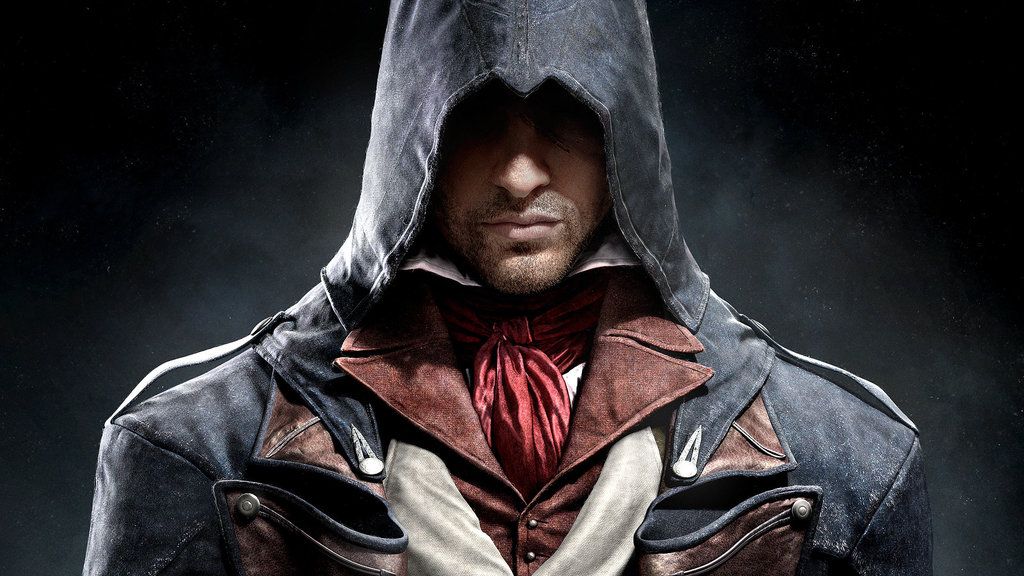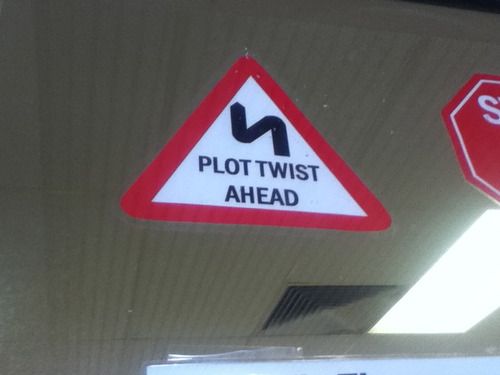Assassin’s Creed Victory, the 537th game in the series, is due out later this year. Set in Victorian London, it has the potential to provide a memorable, captivating atmosphere; not to mention legendary historical figures, and some iconic buildings to explore and climb. But how much of this will come to pass, how well will it be handled, and – most importantly of all – how fun will it be to play? Nobody outside of Ubisoft has any idea yet – but going by the last big release, the signs aren’t good.
I’d like to explain what Unity did wrong and why Victory is so important to the survival of the series, but first I’d like to demonstrate that I’m not above going for some cheap laughs along the way. Speaking of cheap laughs, you may have seen the abbreviation ‘AssCreed’ used. I don’t know who first came up with this, and it’s a noble attempt at ridicule, but let’s be honest; it’s not particularly funny. No, what we should be doing is abbreviating Assassin’s Creed to ‘Ass’. In and of itself, I shall be the first to admit, this is not hilarious. Apply it to every game in the series, however, and what you end up with does undeniably look like a list of American porn movies. Some examples (in chronological order of release):
- Ass 2
- Ass Discovery
- Ass Brotherhood
- Ass Revelations
- Ass Liberation
- Ass Liberation HD (blu ray release)
- Ass Rogue
- Ass Victory
It’s like they did it on purpose.

Anyway, let’s talk about Ass Unity. It was a disaster. It was a critical disaster from a business perspective; it did receive a fair number of very positive reviews, but the vast majority of big-name sites and magazines gave it verdicts ranging from middling down to damning. It was a technical disaster, the release day, unpatched version being notoriously glitched and bugged to what is frankly an unacceptable degree for a game with a disgustingly high RRP. It was a PR disaster, with Metacritic being flooded – and remaining flooded – with furious, low scoring user reviews (not to mention the unwelcome microtransactions that were hidden from reviewers before release). All things considered, the fact that it unofficially plummeted in price fairly quickly should come as no surprise. I’ve only finally started playing it myself because I bought a download version for less than nine pounds. Unity was also a design disaster, but exactly how and why is going to take a little while to explain.
Let’s return briefly to the game’s technical woes, as the impact this has had on the general public’s opinion of the series as a whole should not be underestimated. The series has traditionally suffered from a choppy frame rate, and Ass 3 had so many glitches that virtually everybody who played it encountered something. Compared to Ass Unity however, Ass 3 launched as a flawless piece of work. We’ve all seen – either first hand, or in screenshots passed around the internet at Ubisoft’s expense – the cutscene characters with their faces ripped off. The frame rate was also absolutely abysmal to begin with, and the multitude of other bugs and glitches that players hit on a regular basis could fill a book. Even though I didn’t start playing until about five months after Unity first came out, with the benefit of all the patches released during this time, my experience has so far been far from perfect. I’m only about a third of the way through the story, and I have yet to try co-op; but I’ve already seen a man briefly floating in mid-air, a corpse coming back to life (who then proceeded to walk through other NPCs for about ten seconds before remembering he was dead, and falling back to the floor), and I’ve also had the game crash in the middle of a mission and rudely fling me back to the Xbox One dashboard for no apparent reason.
Unity’s initial technical problems were so severe, they now colour the public’s perception of the franchise as a whole significantly.
Even if the game had released in a technically sound state (which we should not let Ubisoft or the industry at large forget it certainly did not), there were plenty of intentional mistakes made which dragged the game far below the level of series highlight Black Flag. First of all, let’s talk about menus.

Why do people go to restaurants? Why do you go to restaurants? Is it, as I suspect, because you want to eat the food? Or is it, as Ubisoft seems to believe, because you like to spend as much of your life as possible looking through menus? If I’m wrong and Ubisoft is right, then boy, are you ever going to enjoy your time with Ass Unity! There are multiple menus for the shop. There’s a little menu when you reach a mission marker. There’s a little menu when you finish a mission. There’s a veritable army of menus when you pause the game. There’s a menu for skills, containing sub-menus for skills. There’s a menu for gear, containing sub-menus for gear, containing menus for gear. There’s a menu for missions, containing sub-menus for missions, and… well, I think you get the idea. There are a lot of menus. A lot of menus that you have to trawl through if you want any chance of progressing through the story.
Remember that dreaded word ‘microtransactions’ that cropped up regarding Unity earlier? Well they sort of, how do I put this… ruin the game. Not completely, but enough to make Unity seem like a rough and shoddy experience that was released several years before Ass became a household name, rather than being the most recent entry in the franchise. You do not have to spend a penny and, DLC aside, there’s nothing in the game that cannot be unlocked through old-fashioned play. That, however, is not the point.
The point is that the very presence of microtransactions meant that the developers (under strict instructions from the publishers, I would imagine) carefully worked the rest of the game around them. There have always been unlocks and upgrades in Ass, nothing wrong with that. In Unity, however, your character starts off with the life expectancy of a balloon in a porcupine orgy. It takes a handful of health upgrades and several carefully-selected pieces of (expensive) clothing before your character here has a similar toughness to previous heroes. Yes, that’s right; Unity is one of those games where you can lose a fight simply because you walked in wearing the wrong pair of trousers. If you’re struggling to raise the funds for the right trousers (or hood, or shirt, or cuffs, or outfit, or gun, or one-handed weapon, or two-handed weapon) you could always, you know… turn to the microtransactions.
Do you see where I’m going with this?
To those who blindly rush to the defence of a multi-million pound corporation with something along the lines of ‘Don’t h8 n00b, git gud lol’, I offer a big fat ‘shut the hell up, idiot’. The protagonist has been crippled in Unity to an extent never before seen in the series, and all because the in-game economy has become further reaching and deeper than ever. Yes, of course if you can avoid getting hit in a fight, it doesn’t really matter what your health or (invisible) defence stats are like. As in previous games however, fights can often involve facing several opponents at once (especially if you’ve unintentionally broken stealth), and the lower your health – and, indeed, the lower your amount of unlocked weapons and equipment – the lower the chances of survival in such a situation for the majority of players. If it was like this from game one, fine, no cause for complaint; but the player has been artificially weakened in Unity to encourage – nay, necessitate – the spending of huge amounts of in-game cash. Or, for some, smaller amounts of real-world cash.
To touch upon technical issues again, the free-running mechanic has always been a little iffy. By the time Black Flag came around, it actually worked quite well (or so I thought when I reviewed it). It confuses me, therefore, why it is often so frustratingly inaccurate in Unity. Being able to use one of two buttons to tell the game whether you’re trying to go up or down is a welcome addition, but that doesn’t stop your clumsy assassin grabbing onto the wrong edges, failing to grab something right in front of him, running on the spot instead of rounding a corner because you aimed two pixels too far to one side, and spending several seconds jumping and climbing around an open window instead of into it.
Then there’s the organisation, or lack thereof, of the collectables and optional objectives. The further you get through the story (and I still have a long way to go myself, remember), the more the map looks like several people have vomited random icons all over it. This is reflected on the in-game minimap too and, because that wasn’t quite bad enough, the game insists on cheerfully highlighting several kinds of markers at once during play. This means that sometimes just finding where you want to go is a mission in itself. Just locating the next story mission can be a challenge sometimes, and if you’re looking for a particular building or area, ha! Good luck with that.
Much less important, but not helping matters, is the writing. I’m now at the stage where I’m prepared to admit that the proportion of good writing in games is improving (extremely) slowly. Ass sits neither at the bottom nor at the top end of the scale, it’s just… okay. The wisecracking Arno is an unoffensive character, but my ability to warm to him is heavily dampened by the fact that he’s little more than Ezio with a ponytail. In a wider sense, there’s simply no intelligence to Unity’s writing. My first session with the game lasted for two hours or so. During that time my wife, who wasn’t even paying any attention to the TV for the most part, idly predicted a crudely telegraphed plot twist more than once. She was right every time.

To summarise: Unity was a bloody mess and, as the first Ass allegedly designed purely for next-gen technology, not to mention the most recent heavily promoted entry in the series, it has now significantly downgraded public opinion of the franchise as a whole. Victory is make or break for the brand whether Ubisoft want to admit it or not. If it learns nothing from the previous game it will be panned by critics and consumers alike, and any future games will pay for it heavily in sales, especially the holy grail of pre-orders. Ubisoft will likely be forced to kill off the franchise earlier than anticipated.
If however Victory proves to be the best Ass yet, obliterating the mistakes of Unity, faith in the series shall be restored and Ubisoft will have a chance of pumping out another eight billion games before finally moving to a new IP. What if it falls in the middle, though? What if Victory is better than Unity, but not as good as Black Flag? That, more than likely, still won’t be good enough. It’ll allow the series to limp on for a few more years, certainly, but it will send out the message that Ass has had its day. That the peak has been reached. And, before long, nobody will want to see Ubisoft’s Ass ever again.



I was about to read this article, but the constant reference to Assassin’s Cred as “Ass” was just juvenile and silly. It really put me off and I won’t be reading the article now.
I’m sorry that you feel that way. Abbreviating the franchise name to “Ass” was intentionally juvenile and silly, but I can certainly see why it put you off, and why it has the potential to put others off. I thought it was funny, and also served to dissipate any automatically assumed respect for a series which is frustratingly inconsistent in quality. That, of course, is just my opinion. In future, I shall endeavour to approach my writing and subjects as a proper adult, without resorting to humour or topics that hark back to one’s childhood.
P.S. Good luck with the Batman blog.
Same thing for me, I mean I’ve heard of the label “AssCreed” before and was perfectly fine with it. You have a solid in-depth analysis after that though, it’s worth bypassing the “Ass” part dude !